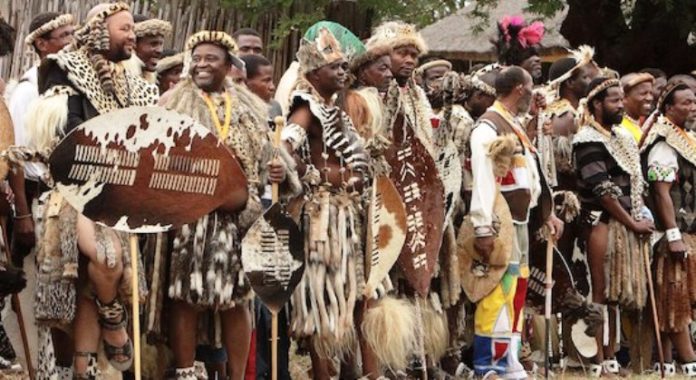Proverbs are used to teach wisdom and convey moral lessons. Zulu is one of the South African tribes known for using proverbs to illustrate ideas, deliver messages of inspiration, teach morals, send warnings to people, and reinforce arguments. Zulu proverbs play an important part in the South African culture and help gain an insight into the traditions and beliefs of the region.
It is worthy to note that these Zulu proverbs are passed down from generation to generation. They are very profound and are generally regarded as small packages of truth about Zulu people’s values and beliefs.
Proverbs And Wise Sayings Are Common In The Zulu Language
Zulu proverbs and wise sayings are unique, full of wisdom, and clearly show how shrewd their thoughts are. They are generally very common in the Zulu language for so many reasons, some of which are that they are an embodiment of truth and are also an effective instrument of education in the Zulu society.

Another reason Zulu proverbs and wise sayings are common in the Zulu language is that values like generosity, hard work, ambition, peace, virtue, and patience, and vices such as wickedness, laziness, and greed are all addressed in these sayings.
Through Zulu proverbs, people are inspired and uplifted. Zulu speech is marked by proverbs and wise sayings; that is why they have a high frequency of usage among other oral forms of speech. Both have exceptional philosophical contents and are generally explicit in every sense.
Zulu Proverbs And Their Meanings
Here are some top Zulu proverbs, their translations, and their meanings.
1. Ishwa lomhluzi wamanqina
Translation: Misfortune of soup made of shanks and feet.
The situation applied: This saying is used on anyone who never does well but is always getting into scrapes (a fight).
2. Udhle incholo
Translation: He has drunk the juice of the flower of the wild aloe.
The situation applied: This is used to refer to a dull, sleepy person. When drunk, wild aloe juice has a stupefying effect and benumbs the limbs to make the person who takes it powerless for a time.
3. Indonga ziwelene
Translation: The walls have come into collision.
The situation applied: This is used when there is a dispute between two important persons.
4. Yimbabala yolwantunge
Translation: He is a buck of an endless forest.
The situation applied: This saying is used on a shiftless person who never continues long in any occupation.
5. Qabu Unoqolomba efile
Translation: I rejoice that Kolomba’s mother is dead.
The situation applied: According to tradition, the mother of Kolomba was a very disagreeable person. This saying is used when anything that one dreads or dislikes passes away.
6. Uvutelwe pakati nje nge vatala
Translation: He is ripe inside, like a watermelon.
The situation applied: When someone comes to a resolution (makes a decision) without expressing it. From its appearance, it cannot be said with certainty whether a watermelon is ripe.
7. Uyakulila ngasonye uxele inkawu
Translation: You will shed tears with one eye like a monkey.
The situation applied: This is a warning used to deter anyone from being led into a snare of any kind. It is said that when a monkey is caught in a trap, he cries, but that tears come out of one eye only.
8. Lukozo lomya
Translation: It is the seed of the umya.
The situation applied: This saying is applied to anything or person considered very beautiful. The seed of Umya is like a small jet black bead.
9. Kude e-Bakuba, akuyiwanga mntu
Translation: Bakuba is far away; no person ever reached it.
The situation applied: Bakuba is an ideal country. This proverb is used as a warning against the undue ambition or as advice to be content with that which is within reach. It is the same as the English saying, “It is no use building castles in the sky.”

10. Akuko mpukane inqakulela enye
Translation: One fly does not provide for another.
The situation applied: A saying of the industrious to the idle, meaning that each should work for himself as the flies do.
11. Isikuni sinyuka nomkwezeli
Translation: A brand burns him who stirs it up.
The situation applied: This proverb is equivalent to the English one, Let sleeping dogs lie. It is used to deter someone to desist from causing troubles that may end up harming them.
12. Njengo mdudo ka Mapassa
Translation: Like the marriage feast of Mapassa
The situation applied: It is said that the marriage festivities of one of the ancestors, Mapassa, were carried on for a whole year. This saying is used to denote anything that is unusually grand.
13. Kuhlonishwa kabili
Translation: Respect is two ways.
Meaning: This saying simply means that you must respect others if you earn respect.
14. Ikhiwane elihle ligcwala izibungu
Translation: The nice fig is often full of worms.
Meaning: This saying is usually used to tell people not to focus on the good part of something only, forgetting on the negative side of it because things do not always appear as beautiful as they seem.
15. Udla indlu yakho njengentwala
Translation: You eat your hut (hair) like lice.
Meaning: This is used to tell someone not to despise someone or something that was once beneficial to them.
16. Inkunzi isematholeni
Translation: The bull is among the calves.
Meaning: This is a way of saying that a great leader was once an ordinary man; the same way, the leaders of tomorrow are the youths of today.
17. Amanxiwa Kamili Mbuya
Translation: A rolling stone gathers no moss.
Meaning: If you keep moving from one place to another and fail to settle in one place doing something, you will not be able to accumulate any wealth.
18. Izinto azimntaka Ngqika zonke
Translation: It is not everyone who is the son of Gaika.
Meaning: This saying denotes that everyone is different and can never be equally fortunate. Gaika was a mighty chief of the Kei.
19. Inhlwa aibanjwa ngekanda isavela
Translation: The winged termite is not caught by its head as soon as it appears.
Meaning: Do not jump to make a judgment before you hear the whole story.
20. Ubude abupangwa
Translation: Height is not reached in a hurry
Meaning: It takes time for things to fall into place gradually. Life is a gradual process.
21. Isihlala ‘ndawonye sidhla amajwabu
Translation: The sitter-in-one-place eats the skin-scrapings.
Situation applied: This proverb refers to a lazy person who lacks the insight of his laziness.
22. Upakati kwomhlana nembeleko
Translation: He is between the back and the sack (A mother carrying her baby on the back)
Meaning: This simply means someone who has a protector to help him.
23. Amaqili katengani
Translation: Cunning men do not deal with each other
Meaning: This is applied in a case when two people know each other too well and keep at a distance of each other.
24. Induka aina ‘muzi
Translation: The stick has no kraal
Meaning: A family where there is much fighting and quarreling does not flourish.
25. Ulind’ amathons’ abanzi
Translation: He is waiting for the larger raindrops.
Situation applied: When the rain begins to fall, the first few drops are generally small, but they increase in size as the rain becomes heavier. Therefore one is advised to take shelter while only the light small drops fall and not wait for larger ones. In other words, you need to get out of trouble while you still can.
26. Zawadl’ ebhekile
Translation: Birds ate corn in the watchman’s presence.
Meaning: This expression is used to describe a person who is easily fooled.
27. Kayihlabi Ngakumisa
Translation: It (bull) does not fight according to the shape of its horns.
Meaning: A bull that looks like a champion fighter may be defeated by an unimpressive-looking one.
28. Ul’ iqili eli ‘ntete zosiwa emuva
Translation: He is cunning, whose locusts are roasted last
Situation: This saying is applied when one manages to get more than the rest of the people.
29. Aku ‘qaqa lazizwa ukunuka
Translation: No polecat ever smelt its own stink
Meaning: Nobody recognizes his own faults.
30. Impungushe kayivalelwq nezmvu
Translation: The jackal is not kept on the same kraal as the sheep.
Meaning: This saying warns an individual from bringing together things or people that do not mesh.
31. Aku’qili lazikota emhlana
Translation: There is no cunning person who licked himself on the back.
Meaning: The saying is used to describe an individual who tried to use trickery of some sort but was discovered.
32. Iso liwela umfula ugcwele
Translation: The eye crosses the full river.
Meaning: If you have a desire to do something, you cannot be stopped by anything.
33. Umuntu ngumuntu ngabantu
Translation: A person is only a person because of other people
Meaning: A person is not to take pride to be self-made because there are always people who have contributed to their success in one way or another. This saying is simply used to emphasize teamwork.
34. Enethuga ayisengeli phansi
Translation: He who has a milking pail should not be obliged to milk on the ground
Meaning: Use your opportunity wisely. This will save you a lot of inconveniences.
35. Isitsha esihle asidleli
Translation: A nice plate is not long eaten from
Meaning: This saying means that even good things don’t last. With time, everything begins to fade away.
36. Uchakide uhlolile imamba yalukile
Translation: The weasel is at ease because the mamba has gone out.
Meaning: When the leader is away, staff/servants get the chance to do things how they want.
37. Upanga umúoka, line-pi?
Translation: You are in a hurry to plant; where has it been raining?
Meaning: Said of people, who are married too young
38. Indlela ibuza kwabaphambili
Translation: The way forward is to ask from those who have been before
Meaning: This saying tells one to seek advice for a situation from people who have been there before. This helps to avoid unforeseen circumstances by providing the best ways to handle the situation.
39. Ukuhamba kuzal’ induna, kazal’ insikazi.
Translation: Life brings forth sometimes a male, sometimes a female
Meaning: Learn to take things as they come
40. Ingwe ikhontha amabala ayo amlhlope namnyama
Translation: The Leopard licks both its black and white spots
Meaning: This proverb indicates that political leaders should exercise justice to all regardless of age, wealth, or gender difference.
41. Intendele iwe enkudhleni
Translation: A partridge has dropped in the yard
Meaning: Said of (or to) a person who has had good luck
42. Ukapa kuzibekela
Translation: To give is to provide for oneself
Meaning: No one becomes poor by giving
43. Akukho mango ongenaliba
Translation: There is no hillside without a grave
Meaning: This saying emphasizes that death is always inevitable.
44. Inkonyana yomdhlandhla yeqa la kweqe unina
Translation: The calf of the wild buck leaps there where its mother has leaped
Meaning: Said of a bad child who has followed the bad example of his parents.
45. Aku ‘ndhlovu esindwa amboko wayo
Translation: There is no elephant that finds its trunk too heavy
Meaning: A self-chosen burden is not always felt
46. Injobo itangelwa ebandhla
Translation: The man’s loin dress-tail is sewn in the company of other men.
Meaning: Do not always do things by yourself; learn to seek others’ advice.
47. Aku ‘langa litshona lingena ‘ndaba zalo
Translation: There is no sun that sets without its affairs
Meaning: Every day has its troubles and events.
48. Aku ‘sibonda sagaga namaxol ‘aso
Translation: There is no stake that grew old with its bark still on
Meaning: Age tells upon everyone
49. Ukubona Kanye Ukubona kabili
Translation: Once beaten twice shy
Meaning: It is used to emphasize learning from your past mistakes and avoiding the same next time
50. Sidakaza oswini Iwenkabi
Translation: We are wandering in the belly of a bullock
Situation applied: This is a way of people saying that they do not know how a particular adventure, journey, or task will end
51. Libunjwa liseva
Translation: The day is worked while it is still fresh.
Meaning: People ought to make use of their time and opportunities while they are still available.
52. Uthanda ukubukwa njegesiyephu
Translation: He likes to be looked at as a long-hairy goat
Meaning: This talks about people who like drawing attention to themselves. The proverb, in other words, means Clout chasing in modern terms.
53. Isala ‘kutshelwa sabona ngomopo
Translation: Who will not be told, will see by the blood-flow
Meaning: Who does not like to listen to warnings must learn by bitter experience.
54. Unebhungan’ ekanda
Translation: He has a beetle in his head
Meaning: This saying is used to describe a person who is acting strangely.
55. Akunyoka yakhohlwa ngumgodi waya
Translation: No snake forgets its home.
Meaning: The saying means the same as the English proverb – East or west home is best.
Here Are Common Zulu Words Every New Learner Should Know
About 10 million people speak isiZulu (the language of the Zulu people), and most of these people (about 95% of them) live in South Africa. It is also interesting to note that over 50% of the population also speak and understand the Zulu language.

If you want to learn the Zulu language, there are certain common words to start with. Below are some simple or common Zulu words, their meanings, and their responses.
Some Zulu Words And Their Responses
| isiZulu (Zulu language) | Meaning | Response |
| Sawubona | Hello | Unjani? How are you? (singular); Ninjani (plural) |
| Beukuphi? | Where have you been? | Lapha (here) |
| Kade waba njani? | How have you been? | Kulungile ngiyabonga (Fine, thank you) |
| kufanele udle | Have you eaten? | Yebo/Cha (Yes/No) |
| Ngiyakuthanda | I love you | Ngiyabonga kakhulu |
| Ukhuluma isiZulu na? | Do you speak Zulu? | Yebo, ingcosana (Yes, a little) or Cha (No) |
| Ubani ongqongqozayo emnyango? | Who is knocking at the door? | Me (mina) |
| Uzizwa unjani manje? | How are you feeling now? | Kangcono (better) |
| Ngiyambona? | Can I see him? | Akunakwenzeka (No way!) |
Other Common Zulu Words And Their Meaning
- Hi! Sawubona! (to a person); Sanibona! (to persons)
- Good morning! Sawubona! (to a person); Sanibona! (to persons)
- Good evening! Sawubona! (to a person); Sanibona! (to persons)
- Welcome! (to greet someone) Ngiyakwemukela! (to a person); Ngiyanemukela! (to persons)
- Unjani? – How are you?
- Kukhule! – Oh! That’s good!
- Ngikhona, ngiyabonga! / Ngiyaphila, ngiyabonga! – I’m fine, thanks!
- Angazi – I don’t know
- Igama lami ngu… – My name is
- Ngikufisela inhlanhla! – Goodluck
- Ubusuku obuhle namaphupho amamnandi! – Good night and sweet dreams
- Phephisa! – Sorry (for a mistake)
- Akunkinga! – No Problem!
- Lokhu / lokho. Lapha / Lapho – This/ That. Here/There
- Mina / wena. Yena / yena – Me/ You. Him/ Her
- Ngiyakuthanda! – I love you
- Ngiyakuhalalisela! – Congratulations!
- Bheka! – Look
- Kunye, isibili, kuthathu – One, Two, Three
- Okune, isihlanu, isithupha – Four, Five, Six
- Isikhombisa, isishiyagalombili, isishiyagalolunye, ishumiSeven – Eight, Nine, Ten
- Ungisize! – Help
- Ngiyabonga! Thank you
- Namhlanje / Manje – Today/ Now
- Kusasa / Izolo – Tomorrow/ Yesterday
- Ungakhathazeki – Don’t worry